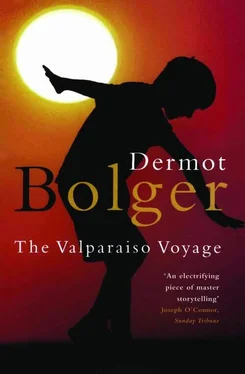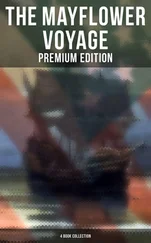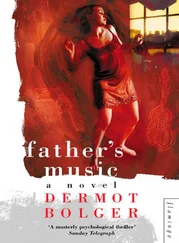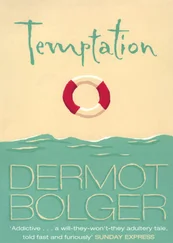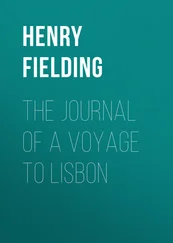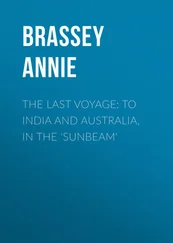The Valparaiso Voyage
Dermot Bolger

Bernadette
Tháinig long ó Valparaiso,
Scaoileadh téad a seol sa chuan;
Chuir a hainm dom i gcuimhne
Ríocht na greine, tír na mbua
‘Gluais,’ ar sí, ‘ar thuras fada
Liom ó scamall is ó cheo;
Tá fé shleasaibh gorm-Andes
Cathair scáfar, glé mar sheod…’
A ship came in from Valparaiso,
Let go her anchor in the bay,
Her name flashed bright, it brought to mind
A land of plenty, of sun and fame.
‘Come,’ she said, ‘on a long journey
Away from this land of cloud and mist;
Under the Andes’ blue-grey slopes
There’s a jewel city, by the sun kissed…’
From An Long (The Ship) by Pádraig de Brún, 1899—1960, translated from the Irish by Theo Dorgan.
Cover Page
Title Page The Valparaiso Voyage Dermot Bolger
Epigraph Tháinig long ó Valparaiso, Scaoileadh téad a seol sa chuan; Chuir a hainm dom i gcuimhne Ríocht na greine, tír na mbua ‘Gluais,’ ar sí, ‘ar thuras fada Liom ó scamall is ó cheo; Tá fé shleasaibh gorm-Andes Cathair scáfar, glé mar sheod…’ A ship came in from Valparaiso, Let go her anchor in the bay, Her name flashed bright, it brought to mind A land of plenty, of sun and fame. ‘Come,’ she said, ‘on a long journey Away from this land of cloud and mist; Under the Andes’ blue-grey slopes There’s a jewel city, by the sun kissed…’ From An Long (The Ship) by Pádraig de Brún, 1899—1960, translated from the Irish by Theo Dorgan.
Introductions
I SATURDAY
II SUNDAY
III MONDAY
IV TUESDAY, A.M.
V TUESDAY, DAWN
VI WEDNESDAY, 2 A.M.
VII WEDNESDAY, 9 A.M.
About the Author
Praise
By the same author
Copyright
About the Publisher
What was the Scottish train driver thinking about at that moment? Or the first-class passengers who glanced up from laptops and papers to see the gathering mesh of rail tracks converging at that junction on the outskirts of Glasgow? A labyrinth of points, signals and sidings, graffiti disfiguring the crumbling railway sheds and steep oil-stained concrete walls. Indistinguishable birds circling in the high grey light of the sky.
As a child, watching the Christmas toy display in Alcock’s shop window off Market Square in Navan, I used to imagine that trains drove themselves. A perfect clockwork world of engines bobbing beneath bridges and emerging from hillside tunnels where plastic sheep grazed placidly.
Occasionally something might go amiss but all you had to do was bang on the window until a shop assistant picked up the engine whose wheels kept whirling uselessly around. Set back on the track, it glided past again, while toy workmen looked impassively on, as if nothing could ever disturb their pristine universe.
Within seconds of that head-on collision between the 7 a.m. train from Perth and a local commuter service, the top carriages of each train had become a fireball, six times hotter than the furnaces used for cremation. Back along the track voices sang out from a concertina of derailed carriages. ‘Help me!’ ‘Save me!’ ‘Sweet Jesus!’ Shards of broken glass everywhere, even littering the upturned windows that refused to break. Passengers hammering on them with their shoes and briefcases and fists. Doors opening upward to the sky, as people reached down to pull other survivors out.
A man, who nobody knew was alive or dead, lay beside his severed leg. A young woman in a white skirt clutched one shoe as she sat on the embankment shivering. A helicopter’s drone blended with a growing symphony of sirens. A child’s watch stopped dead at seven-fifty-four. Stubble further darkened a thickset chin, which an undertaker would have to shave twice. A mother held her nine-year-old son who cried because his homework was destroyed.
Early shift workers from local factories swarmed towards the rear of the train, desperate to help, prising open doors to scramble into carriages and search under rubble. Others simply stood beside the red signal, which the express driver had missed in slanting winter sunlight, staring at the spot where the two engines met. Inside that inferno the bodies of both drivers, plus a lottery of first-class passengers, were being consumed by such scorching sheets of flame that not even blackened sets of teeth would survive among the ashes to testify to their number.
The frosty air was heavy with smoke, billowing upwards and out, like the sail of a tall ship that had left a West of Ireland quayside and steered out into the wind, setting forth across the ocean for the dreaming white streets of Valparaiso.
Navan, Co. Meath. Thriving hometown of carpets and wooden furniture. Warehouses and showrooms, neat factories dotting its outskirts. Strong farmers’ wives who would arrive in during my childhood to search for bargains, while their husbands belched and, with top buttons undone, slept off enormous lunches in broad armchairs in the hotel lounge.
Navan. With narrow streets as tight as a nun’s arse, falling downwards to where the Boyne and Blackwater meet. The fulcrum of Market Square where a kindly barber had clipped hair for half a century, discussing painting and amateur drama, rarely mentioning his nights on the run in an Old IRA flying column. An unlovely trinity of streets spreading out from it: Ludlow, Watergate and Trimgate.
Their medieval gates are long felled, their town walls disappeared. An ugly motorway scars the landscape now, necklaced by new estates with Mickey Mouse names. Dublin commuters forced into exile here by rising house prices, resenting their daily drive thirty miles back into the capital and suspicious of locals who are more suspicious of them. Outsiders and blow-ins circling each other around the closed fist of my native town.
‘Navan itself has little to detain you,’ The Rough Guide to Ireland says. A pity that one unfortunate black sailor at the start of the nineteenth century didn’t heed this advice. Hiring a rig of horses when his ship docked in Dublin after a voyage from some exotic foreign port, he took off through the morning rain to explore this land. It was noon when his black horses trotted into Market Square in Navan. He climbed down, his black boots and cloak startling the gaping locals. He found the local tavern and ordered. The innkeeper served him with true Irish hospitality, then withdrew to join the throng on the street, none of whom had ever seen a black man before.
They decided that there was only one person he could be. Old Nick, Lucifer himself come to tempt them. A rope was fetched, a horse chestnut tree selected in the field where my street was later built. It was the final lynching in the Royal County of Meath. This story doesn’t make The Rough Guide, nor any of the historical brochures welcoming visitors in the tourist office on Railway Street. Perhaps it was just a myth invented by Pete Clancy to frighten me as a boy. It certainly succeeded, hearing the creak of a tree at night beyond the outhouse where I slept, expecting to see a dark body still twitching in mid-air if I peeped out through the chicken wire.
Who ordains which stories are remembered and what tales discreetly forgotten in any town? Were there many in Navan who recalled mine, with my family gone? Few would wish to be reminded, in this new traffic-choked prosperity they live in. Yet nobody can control the ghosts that haunt these streets. Lost foreign sailors; starved serving girls who shivered, waiting for their muscles to be felt at hiring fairs; barefoot messenger boys who contracted gangrene by running with open sores through worm-infested horse dung on the cobbles; our local poet, Ledwidge, killed by a stray shell at Ypres and appearing to a friend that same night outside the Meath Chronicle printing works. I just knew that such ghosts existed, because, walking up Flower Hill, I was taking my first step amongst them.
Читать дальше
